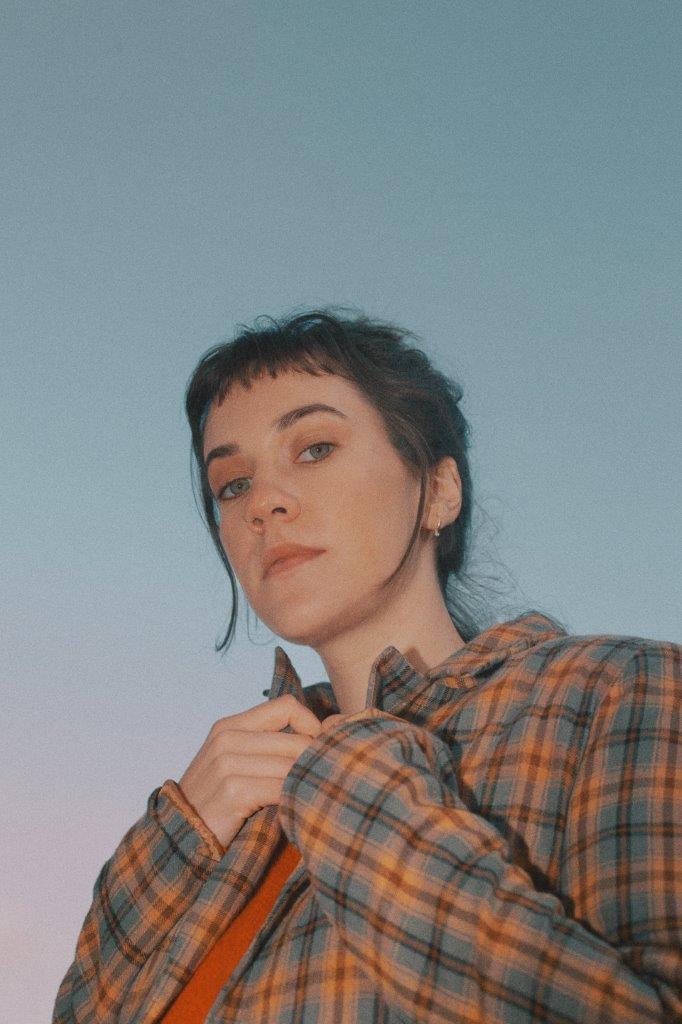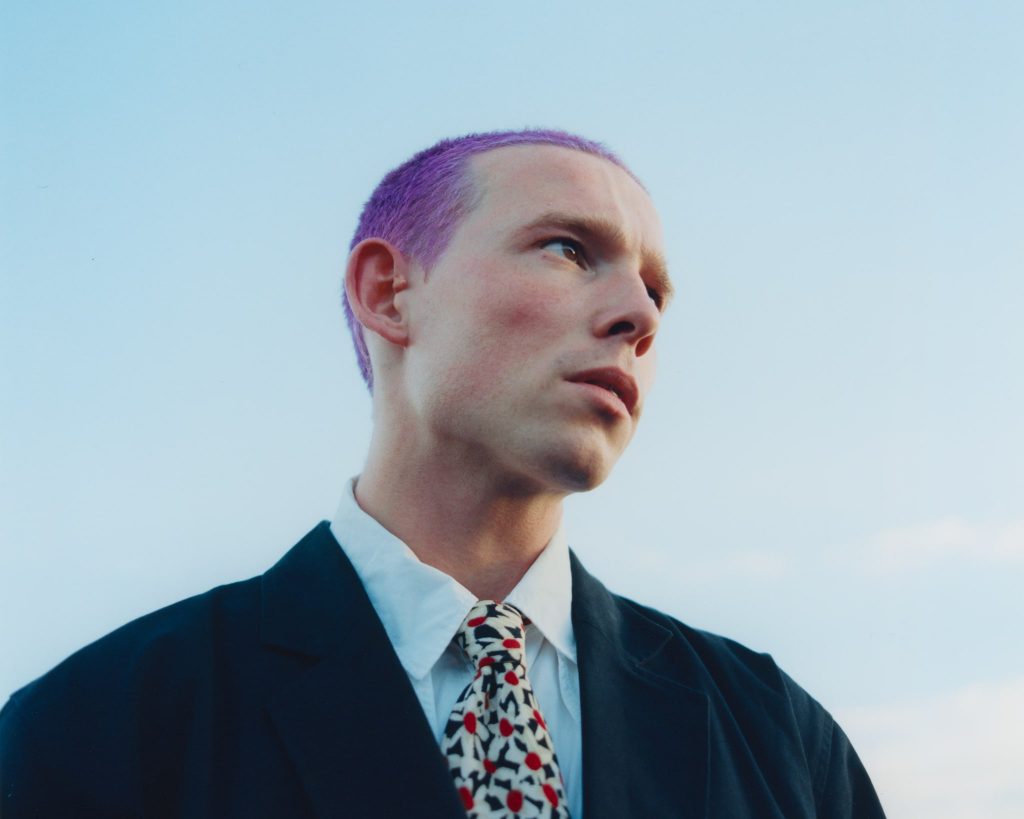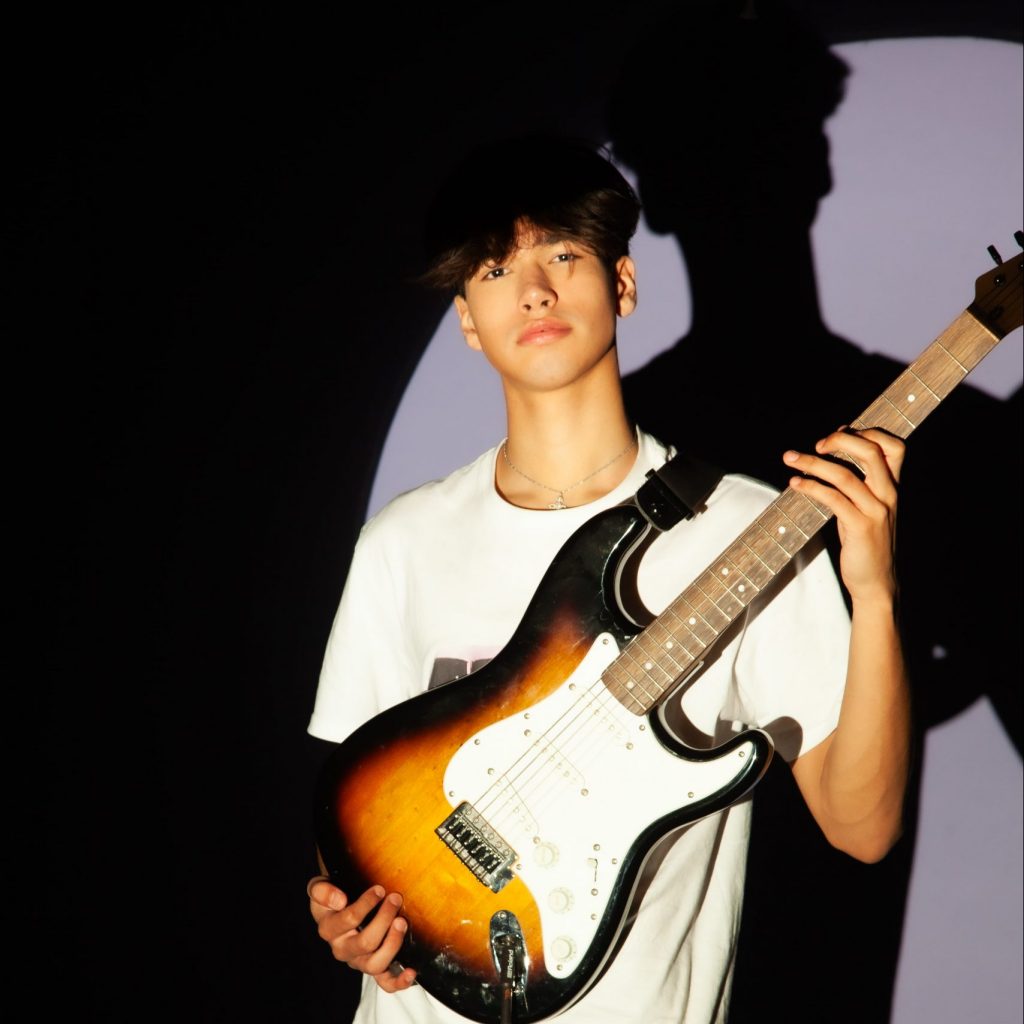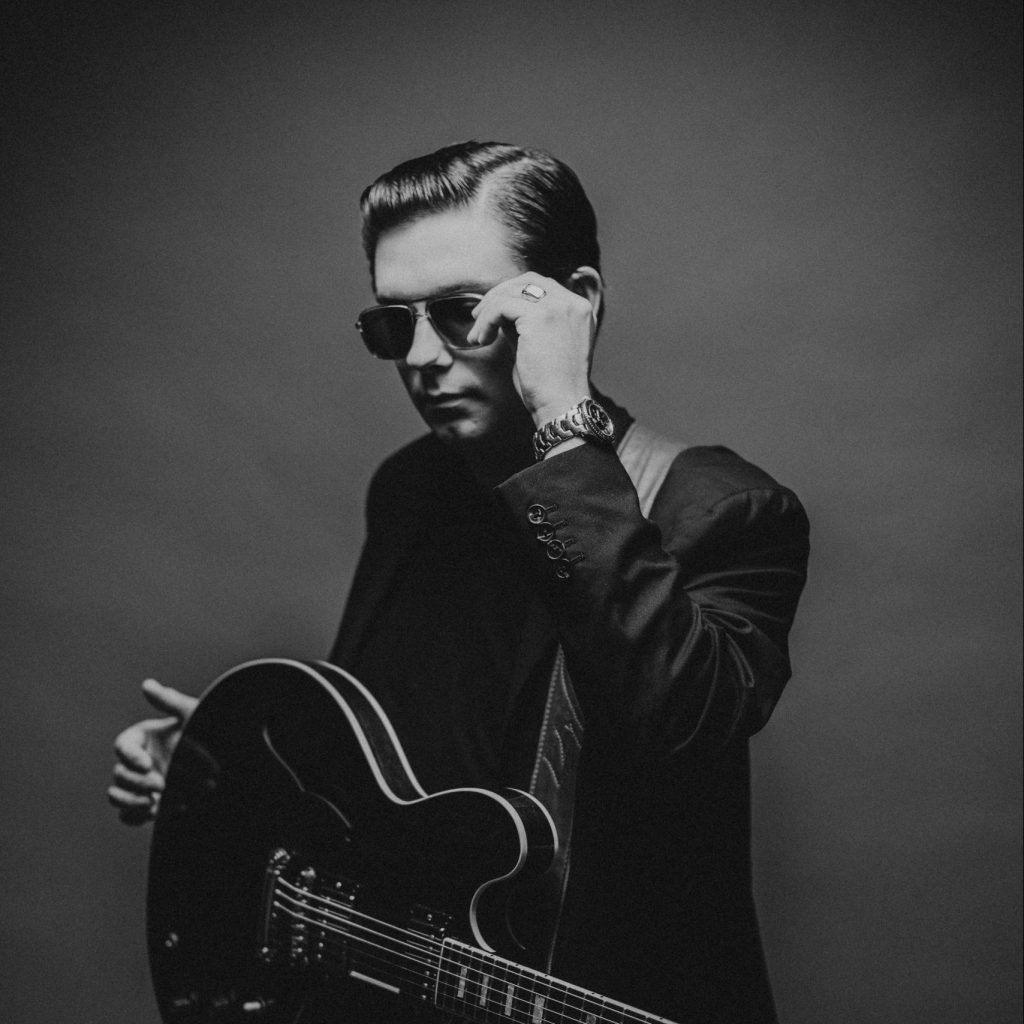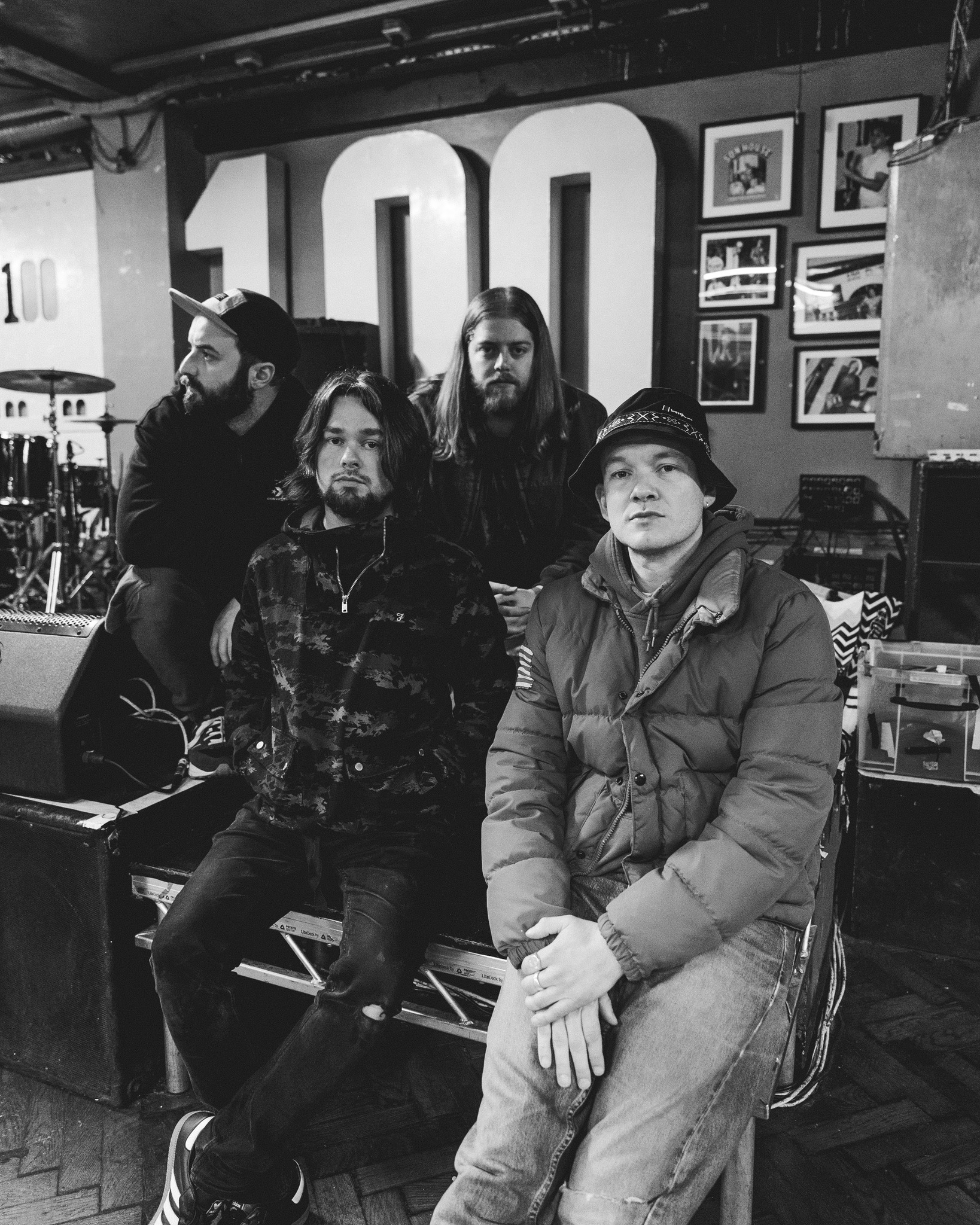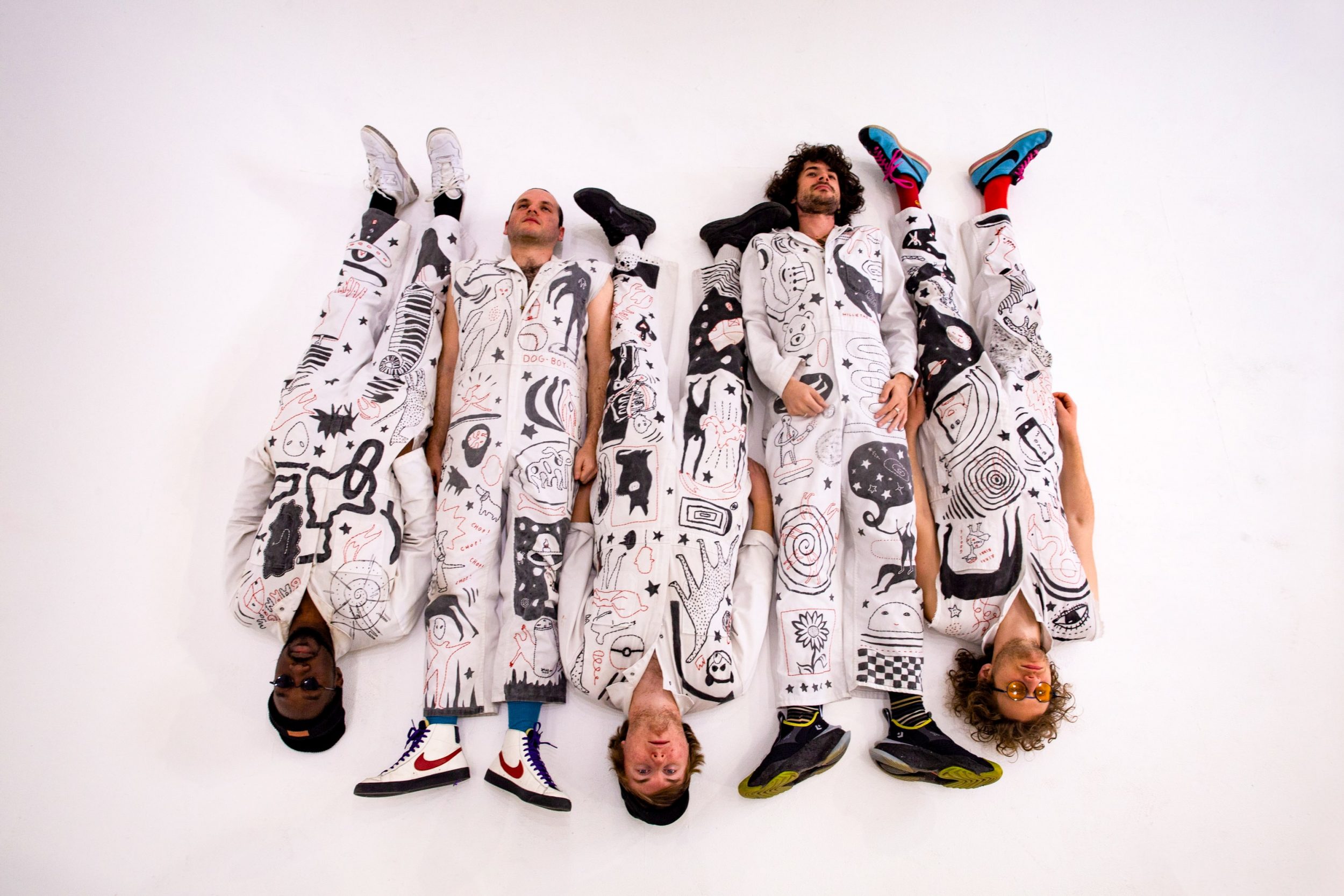There is comfort in the familiar. Yet it is precisely when we are most comfortable that we begin to ask questions. Artist Bess Atwell is full of questions: on life, death, love, loss… and how things that at first seem mundane become profound when looked at in a different light. On her sensational album, Already, Always, Atwell offers one of the most assured records by a British artist in years. Released via Lucy Rose’s Communion imprint Real Kind Records, it focuses heavily on Atwell’s own experiences yet has a universal appeal – demonstrated already by the support from the BBC’s 6music, and millions of streams of Atwell’s earlier, self released, singles. “What I really care about is people listening to this album and saying, ‘God, I feel like I know her,’” the Brighton-based artist explains. “I wanted to illustrate, not just the romance in relationships, but that bit that comes afterwards.”
This is the reason she chose to open the record on its first single, “Co-op”. It’s an exquisite work that unfurls like one of those first precious blooms of spring; luscious ripples of guitar surround Atwell’s crystalline vocals (that will undoubtedly draw favourable comparisons to the likes of Marika Hackman and Julia Jacklin). Her lyrics switch between the past and present tense, offering polaroid snapshots of a time where refuge and routine took precedent. It’s a charming vignette of Atwell’s life with her partner; a relationship that provided “some sort of permission to recuperate from family trauma”. It lays the groundwork for the ensuing exploration what drives us to seek comfort, and what drives us away from it. This is perhaps most evident in her referencing Virginia Woolf’s Mrs Dalloway in the line, “It’s the laughter, it’s the plunge”. That scene – where the title character looks out at a peaceful view and is suddenly overwhelmed by dread that something terrible is about to happen – encapsulates what Atwell is trying to understand through her music. At first, it would be easy to assume this is a breakup record. While certain songs do tackle a period of separation between Atwell and her partner, however, she is more preoccupied by different perspectives. “I think there are a lot of love songs about being broken-hearted or being broken up with… but there’s a real heartbreak that comes with questioning things,” she says. “You do so much introspection – you’re dealing with that turmoil. It’s easier to be broken up with. You know where you stand with your emotions. So that aspect is what most of the record is about, along with family stuff. It’s all about me!” she adds, laughing.
That “family stuff” refers to Atwell’s fraught upbringing, by parents who struggled with depression while caring for her younger sister, who has severe autism. “I didn’t know any different, but it was very difficult,” she says. “And I think sometimes when you grow up with something like that, you can internalise it.” Tension later evolved into chaos; Atwell’s parents separated. The family was forced to move home, and Atwell’s sister went into full-time care. At the centre of this storm was Atwell, desperate to be heard and understood, but without a means to communicate what it was that she so badly needed. Having spent most of her life being forced to internalise her feelings, it’s understandable Atwell now has so much to say.
She spent the first lockdown living with her parents, now reconciled, which she found challenging. “I kept to myself as much as possible, in the garden and out walking,” she says. “As someone who has previously avoided self-sufficiency it was a time of personal growth.” As the weather began to shift into summer, Atwell found herself struck by the defiance of the seasons. She ignored her usual rules of what might be deemed “self-indulgent” and began to write “Time Comes in Roses”, one of the standout songs of the album. “It’s a reflection of quite an ugly side of me,” she says, “which is liberating.” Another, “Red Light Heaven”, is described by Atwell as a “Frankenstein song” that touches on the disappointment she feels over her lack of spirituality. It then moves on to explore the role she has played in the lives of the people she loves, and her “mournful” perception of the past: “Despite the lack of meaning with which I perceive the world, I still attempt to solicit authenticity in my relationships, which has alienated those not ready to give it.” There is a running joke in Atwell’s family about the letters she’d write to her mother as a child. “It was the only way I felt I could be heard, and I reference that in this song too.”
The imagery Atwell conjures in her lyrics often spins from the pastoral to the abstract. She tends to stay away from traditionally “feminine” imagery, but like Big Thief’s Adrianne Lenker, one of her heroes, Atwell uses nature to evoke those themes of conflict. There’s a fatalistic quality to her writing, perhaps even nihilistic, that stems from Atwell’s anxieties surrounding death. “I wasn’t that aware that it was coming across that strongly,” she admits. “I’m not religious, but I really want there to be meaning, and I feel things very deeply. That comes up in the music – I’d call it anger, not frustration, at not having more faith.”
This anxiety – something Atwell has struggled with for more than a decade – a fear of death, which many will relate to, but also the fear that life itself is meaningless. Yet a near-death experience brought to light an unexpected side-effect of this, where Atwell found herself in a near-transcendent state of calm. “We had a really awful plane flight – I’m terrified of flying,” she says. “And it was so bad that I was holding the hand of the woman next to me, because she was alone and she looked really frightened. I remember my partner hyperventilating, I’d never seen him that scared. And I went to this really calm place.” Already, Always took two years to record due to changing circumstances, but you wouldn’t know it from the sheer cohesiveness of Atwell’s sound. Half was created with Giles Barrett at Soup Studios – a red boat on the Thames in south-east London – while the other half was recorded in her guitarist’s bedroom. While she is traditionally drawn to acoustic instruments, Atwell found this project taking a more electronic route than anything she’d done before. The majority of the songs were conceived on Logic demos in her bedroom, but perhaps a more subconscious influence was Beach House’s album, Teen Dream: “We used Farfisas and Junos to create a dreamier, synthetic landscape.” These elements give the record a modern twist, balanced perfectly with Atwell’s timeless themes and the more organic sounds of a tenderly picked guitar, yearning strings, bright piano notes and shimmering symbols.
On “Silver Fir” – the only piano-led song on the record – you hear a stark, emotionally piercing quality redolent of the soundtrack of Studio Ghibli’s film, Spirited Away, which Atwell herself cites as an influence. “Dolly”, about a family member with whom Atwell was once close, examines the toxic attitude (“probably as a result of the media”) that leads us to romanticise emotional turmoil. “I was angry at the world on her behalf, and I had nothing better to say than ‘some things are gonna be bad, babe’,” she says. The only cover on the album is “Olivia, in a Separate Bed”, the majestic yet tragic narrative of a relationship’s collapse from Fleet Foxes’ Robin Pecknold. Atwell first heard the song when it was leaked in 2012: “I waited years for him to release it properly. He never did, so I decided to,” she says. It’s my understanding that the demo was impulsively uploaded to the internet and when Robin decided to take it down it had already been reuploaded by fans. I reached out to him on social media to check that he’d be comfortable with me covering the song and he kindly approved.”
Several of Atwell’s original songs were written around that brief but painful separation from her partner. It was the first relationship where she felt truly safe for the first time, ensconced in the familiar and the routine. But like the aforementioned Mrs Dalloway, Atwell was conflicted by her instinct to flee the very thing providing that comfort. She addresses this on the closing track, “Nobody”, which fits into the existential sense of loneliness that dominates the record. “I think it’s a perfect way to end things,” she says. A perfect ending, yes, but Atwell’s debut marks the beginning of a truly extraordinary career.
